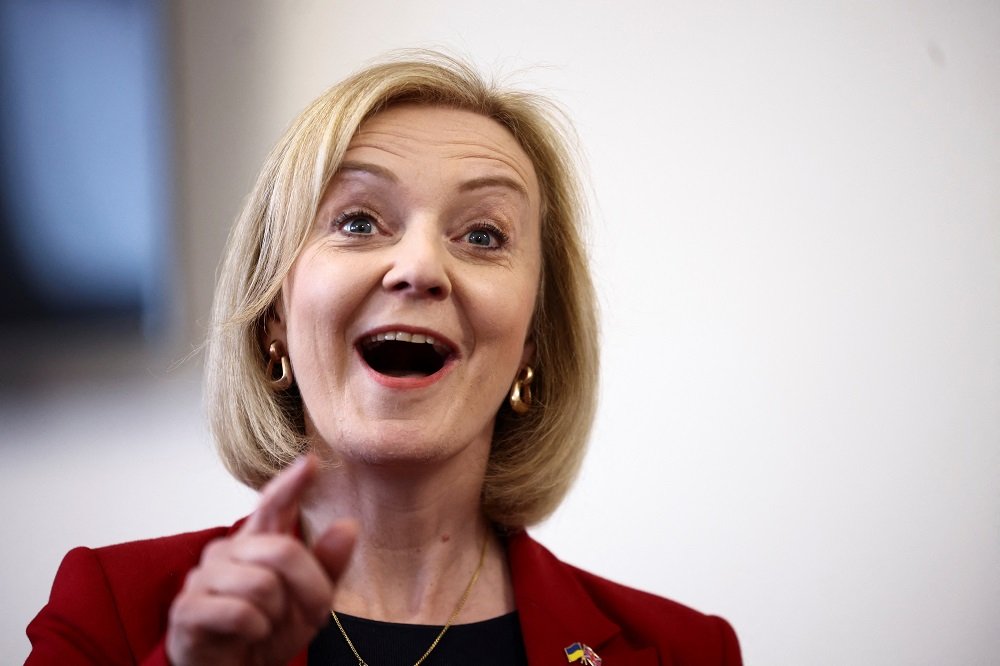Truth: Former prime ministers no longer receive their own special pensions, but contribute to a ministerial scheme that provides them with a pension on retirement
Following the recent general election, which saw former Prime Minister Liz Truss lose her seat in the House of Commons, a wave of misinformation about the pensions and financial benefits entitled to former prime ministers has surfaced on social media platforms like X (formerly Twitter) and Facebook. Many posts falsely claim that former prime ministers, including Rishi Sunak and Liz Truss, are entitled to a “£115,000 Prime Minister’s pension for life.” Other versions of this claim have cited amounts like £125,000 or £100,000 annually, while some suggest an £80,000 yearly pension for life. Another claim asserts that Ms. Truss receives “£115,000 tax-free for the rest of her life.”
These claims are misleading. There is no specific pension for former prime ministers, and the figures cited in these posts appear to be a misunderstanding of the Public Duty Costs Allowance (PDCA)—a fund designed to help ex-prime ministers cover expenses related to their public duties.
Understanding the Public Duty Costs Allowance
The PDCA, introduced in 1991 after Margaret Thatcher’s resignation, is not a pension. Instead, it is an allowance that former prime ministers can access to cover the costs associated with maintaining an office, handling correspondence, and supporting their public duties. The allowance reimburses these expenses up to a maximum of £115,000 per year, a cap that was set for the 2023/24 financial year and has remained unchanged since 2011.
The allowance is strictly for covering expenses incurred in the course of fulfilling public duties, such as office management, staffing, and travel. It does not cover private or parliamentary duties, nor does it contribute to security costs. Additionally, former prime ministers may claim up to an additional 10% of the PDCA to contribute toward their staff’s pension costs, potentially increasing the total to £126,500 per year.
The Truth About Former Prime Ministers’ Pensions
Since the implementation of the Public Services Pensions Act 2013, which came into effect after the 2015 general election, there has been no special pension scheme for former prime ministers. Prior to this, prime ministers, along with the Lord Chancellor and the Speaker of the House, were entitled to a pension that amounted to half of their final salary upon leaving office. However, this arrangement ended in 2015.
Now, former prime ministers are enrolled in the Ministerial Pension Scheme, which provides a pension based on contributions made while serving as ministers. This scheme is in addition to the standard pension scheme available to all Members of Parliament. The actual value of the pension depends on the contributions made and is only accessible once the individual has ceased to be both a minister and an MP.
There is no evidence to support the specific figures quoted in the misleading social media posts—whether £115,000, £125,000, or £80,000 per year.
Additional Financial Support for Former Prime Ministers
Upon leaving office, former prime ministers, like other government ministers, are entitled to a severance payment, provided they do not take up another relevant office within a few weeks and are under the age of 65. This one-off payment is equal to a quarter of their annual salary at the time of leaving their ministerial position. For instance, Ms. Truss received £18,660 as a severance payment after her brief tenure as prime minister, equivalent to a quarter of the £75,440 salary.
Former prime ministers who lose their seats in Parliament, like Ms. Truss, are also entitled to additional financial support to wind up their parliamentary offices. This includes a ‘winding-up budget’ to cover the costs of closing constituency offices, completing outstanding parliamentary work, and a loss of office payment equivalent to twice their statutory redundancy entitlement, provided they have served continuously for at least two years.
The notion that former prime ministers receive a £115,000 annual pension for life is a myth. While they do have access to the Public Duty Costs Allowance to cover expenses related to their ongoing public duties, this is not a pension and should not be confused as such. It is important to rely on accurate information to avoid the spread of misleading claims, which can skew public perception and influence political opinions.





















